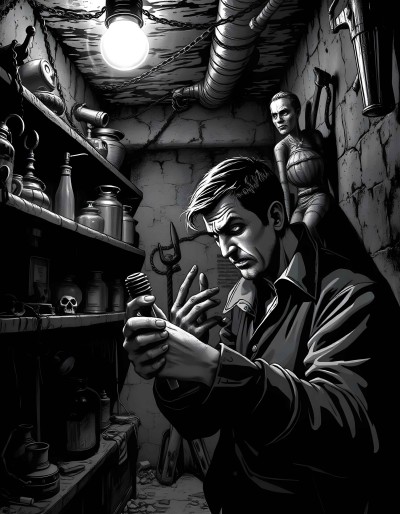Escape Rooms and the Time Keeper: Managing the Clock to Win
The Time Keeper is the player in escape rooms who keeps a close eye on the clock, ensuring the team remains aware of the time left. Their sense of urgency helps maintain the team's pace and pushes everyone to keep moving when things slow down.
Who Is the Time Keeper in Escape Rooms?
The Time Keeper is the player who naturally takes on the responsibility of managing the team’s time. They’re the ones glancing at the clock every few minutes, updating the group on how much time is left, and reminding everyone to stay focused. Time management in an escape room is essential, and the Time Keeper ensures that no one loses track of how fast or slow the team is moving through the puzzles.
This player is not necessarily the loudest or most vocal, but their role is crucial. Their reminders about the clock help prevent the team from getting bogged down in one puzzle for too long, making sure the group remains on track.
What Does the Time Keeper Do in Escape Rooms?
The Time Keeper's role is straightforward but vital to the team’s success. Here’s what they typically do:
- Monitor the Clock: From the moment the game starts, the Time Keeper keeps a close eye on the time. They make sure the team knows how much time has passed and how much is left, delivering regular updates.
- Pace Setter: If the team is moving too slowly or spending too much time on a particular puzzle, the Time Keeper gently nudges the group to pick up the pace. They are constantly thinking ahead, making sure the team doesn’t run out of time.
- Strategy Adjuster: If time is running short, the Time Keeper may suggest changing strategies or prioritizing certain tasks. They help shift the team’s focus to areas where progress can be made quickly, ensuring time is used efficiently.
- Final Countdown Manager: As the clock ticks closer to zero, the Time Keeper ramps up the urgency, encouraging the team to focus on solving the last few puzzles. Their pressure ensures the team doesn’t waste precious minutes at the end.
Why Does a Team Need a Time Keeper in Escape Rooms?
Teams need a Time Keeper because escape rooms are all about balancing speed and accuracy. Without someone keeping track of time, teams can often get stuck on a puzzle for far too long, unaware of how much time is slipping away. The Time Keeper keeps everyone accountable to the clock, making sure the group uses their time wisely and focuses on what’s most important.
In rooms with complex or multi-step puzzles, it’s easy to lose track of time. The Time Keeper’s constant updates provide valuable context for how quickly the team needs to move, preventing unnecessary delays.
When Does the Time Keeper Shine in Escape Rooms?
The Time Keeper truly shines during the critical moments of the game:
- At the Midpoint: Halfway through the game, the Time Keeper checks the clock and makes sure the team is roughly on track. If they’ve fallen behind, this player helps push the team to catch up by prioritizing certain tasks.
- During Slumps: When the team gets stuck on a challenging puzzle, the Time Keeper steps in to remind everyone that time is still ticking. They help refocus the team’s energy, suggesting that they either move on or redouble their efforts if time is running short.
- In the Final Minutes: As the clock winds down, the Time Keeper becomes the most vocal member of the team. They create a sense of urgency, pushing the team to make quick decisions and finalize solutions before time runs out.
Where Does the Time Keeper Make the Biggest Impact in Escape Rooms?
The Time Keeper is most impactful in escape rooms where timing is critical. In rooms with time-sensitive puzzles or challenges that require multiple steps to complete, a Time Keeper’s updates help the team stay on schedule. They also shine in rooms where distractions are plenty, keeping everyone focused on what matters most—the puzzles that move the game forward.
Time-sensitive escape rooms often have moments when teams can get stuck or confused. The Time Keeper’s role in maintaining the pace prevents the group from losing valuable minutes in these moments of indecision.
How Can You Be a Better Time Keeper in Escape Rooms?
Even if you’re not naturally inclined to watch the clock, you can improve your time-keeping skills with practice. Here are some tips for being a more effective Time Keeper in escape rooms:
- Set Regular Time Reminders: Check the clock at regular intervals—every 10 minutes, for example—and announce how much time is left. This keeps everyone aware of the ticking clock.
- Balance Urgency with Focus: While it’s important to remind the team of the time, don’t create unnecessary panic. Your goal is to keep the team moving efficiently, not to stress them out.
- Encourage Forward Momentum: If the team gets stuck on one puzzle for too long, suggest moving on to another task or clue. This prevents wasting time on challenges that can’t be solved immediately.
- Coordinate with Other Players: Work with the Leader and the Strategist to ensure the team’s time is used wisely. Together, you can develop a game plan for how to tackle puzzles in the most time-efficient manner.
- Stay Calm: As the Time Keeper, you may feel the pressure of the clock more than other players. It’s important to remain calm and composed, even when the time is running short. Your focus will help the team make better decisions.
- Use Time Wisely: Make sure to remind the team of the time during transitions between puzzles or when they’re moving to different rooms. This helps prevent the team from wasting time during these critical moments.
Final Thoughts: The Importance of Time Keepers in Escape Rooms
The Time Keeper may not always be the loudest player, but their role is crucial to the success of any escape room team. By keeping everyone aware of how much time is left, they ensure that the team maintains momentum and avoids getting stuck for too long on any one puzzle.
If you’re the type of person who likes to stay on top of things and keep everyone moving, then embrace your role as the Time Keeper. Your steady updates and watchful eye on the clock could be the key to your team’s success.









_1733422171.webp)






